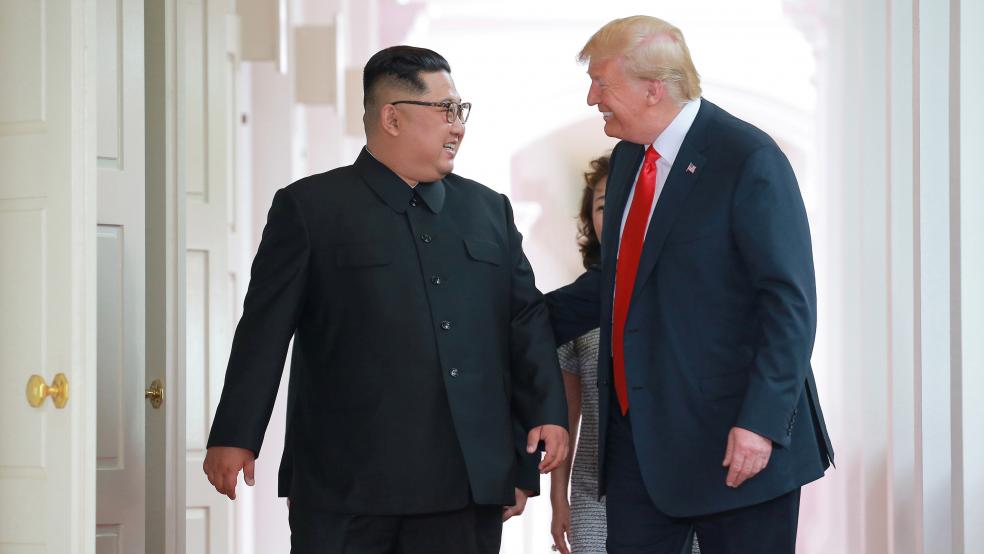President Trump announced Tuesday that the extensive joint military exercises the U.S. regularly holds with South Korea will cease as he seeks to improve relations with North Korea. In addition to reducing military tensions between the countries, the president said that the U.S will save a lot of money by canceling the “war games.”
What Trump said: “We save a fortune by not doing war games, as long as we are negotiating in good faith - which both sides are!” Trump tweeted Wednesday morning. At his news conference following the Singapore summit, Trump said the U.S. would save a “tremendous” amount of money by ending the exercises. “Six and a half hours — that’s a long time for these big massive planes to be flying to South Korea to practice and then drop bombs all over the place, and then go back to Guam,” he said. “I know a lot about airplanes; it’s very expensive.”
The initial reaction: The president’s announcement that the military exercises would end reportedly came as a surprise to both the U.S. military and South Korean officials, and on Tuesday a spokeswoman for the U.S. Forces-Korea said planning for the next scheduled Ulchi Freedom Guardian military exercises this fall would continue, until new guidance was provided by the Defense Department.
The cost-saving claim: There’s no doubt that the military exercises are expensive. The Air Force told CNBC that a B-2 bomber costs $130,000 an hour to operate, while the B-1 costs $95,000 an hour. Leaving those planes in the hangar would probably save some money, but it’s not at all clear if those savings would register anywhere in the Pentagon’s roughly $700 billion annual budget — a budget that Trump has repeatedly boasted about increasing. The planes would still be flown on a regular basis, the Navy would still conduct regular patrols in the region, and the tens of thousands of U.S. troops in South Korea and Japan would remain in place. All come with an extraordinary cost that is likely to continue, regardless of the status of the exercises. According to Sen. Cory Gardner (R-CO), Vice President Mike Pence told senators on Tuesday that “regular readiness training and training exchanges will continue” in South Korea, even as the more formal joint exercises remain on hold.
The bigger picture: Many geopolitical experts have questioned the cost argument altogether, saying that exercises are intended to maintain readiness among the tens of thousands of U.S. and South Korean troops stationed in the country who — despite Trump’s claim Wednesday that “There is no longer a Nuclear Threat from North Korea” — sit across the border from a dictatorship with one of the world’s largest militaries, armed with an arsenal of up to 60 nuclear weapons.
Sen. Lindsey Graham (R-SC) summed up the criticisms of Trump’s cost-saving argument: “The money we spend training with our allies is money well spent. It’s not a burden onto the American taxpayer to have a forward deployed force in South Korea. It brings stability. It’s a warning to China that you can’t just take over the whole region.”
William Cohen, President Clinton’s Secretary of Defense, made a similar point: "Yes, it's very expensive to be in shape, to be ready to defend our country and our allies in the region. To point out how expensive it is misses the point of what strategic deterrence is and how it protects U.S. interests as well as those of South Korea."
And Kathleen Hicks, a Pentagon official under President Obama, warned that any cost-savings come with a price: "It is true that if you don’t choose to ready your force, you can cut costs. But the administration should be acknowledging that it is in fact a readiness decrement.”




